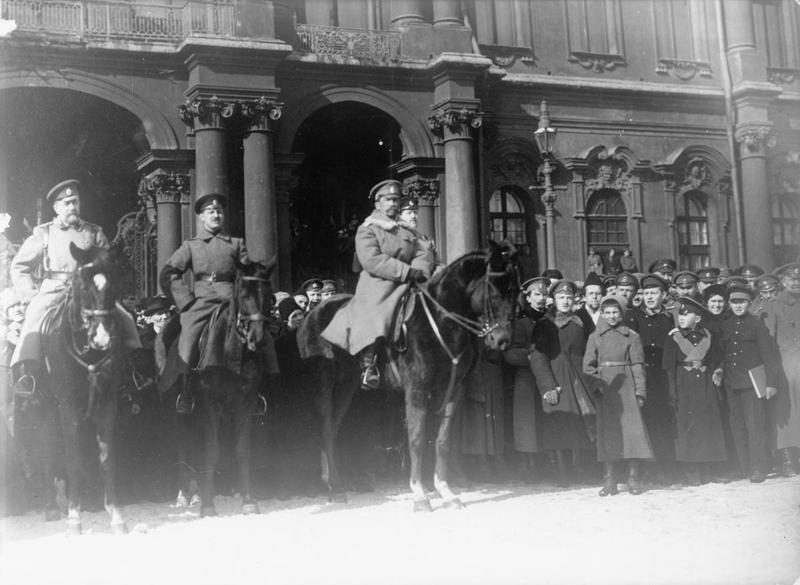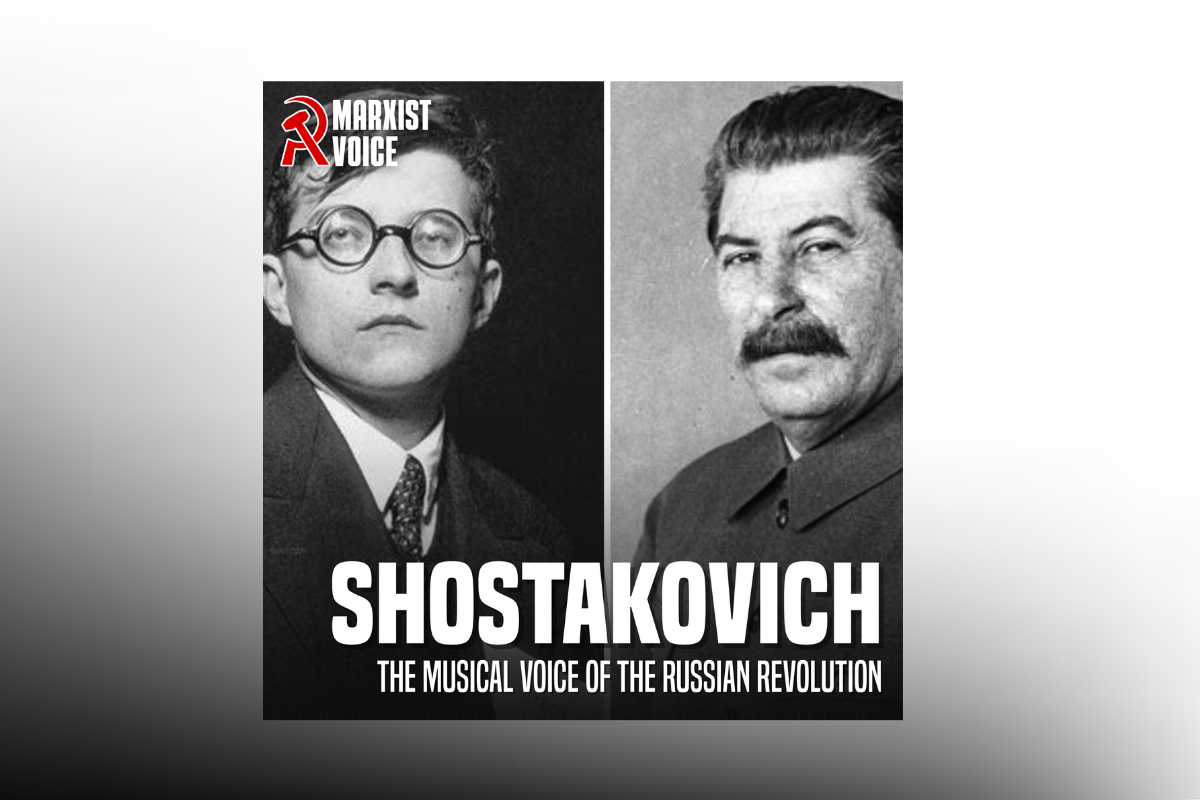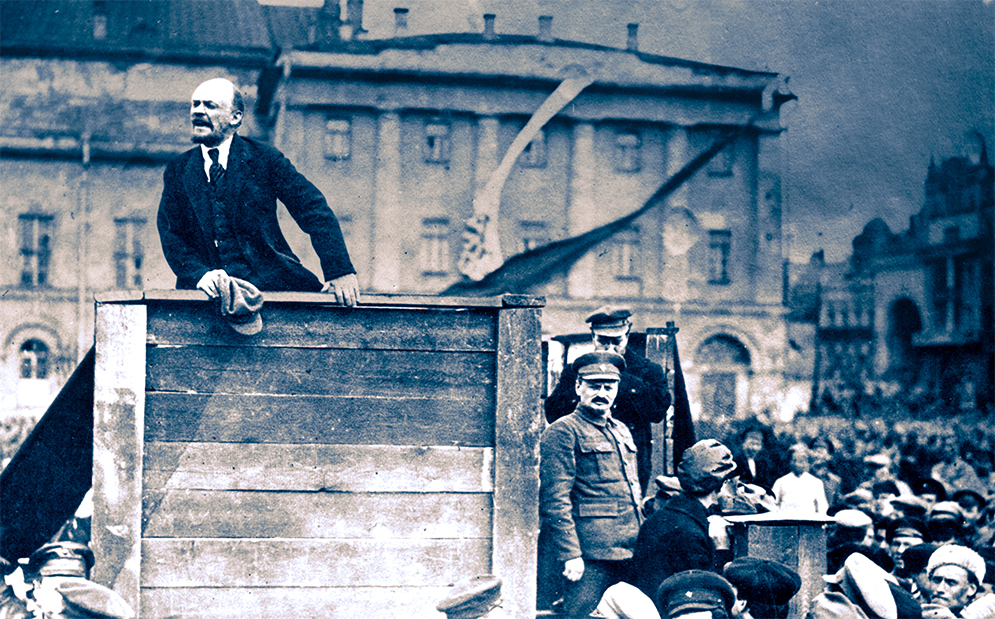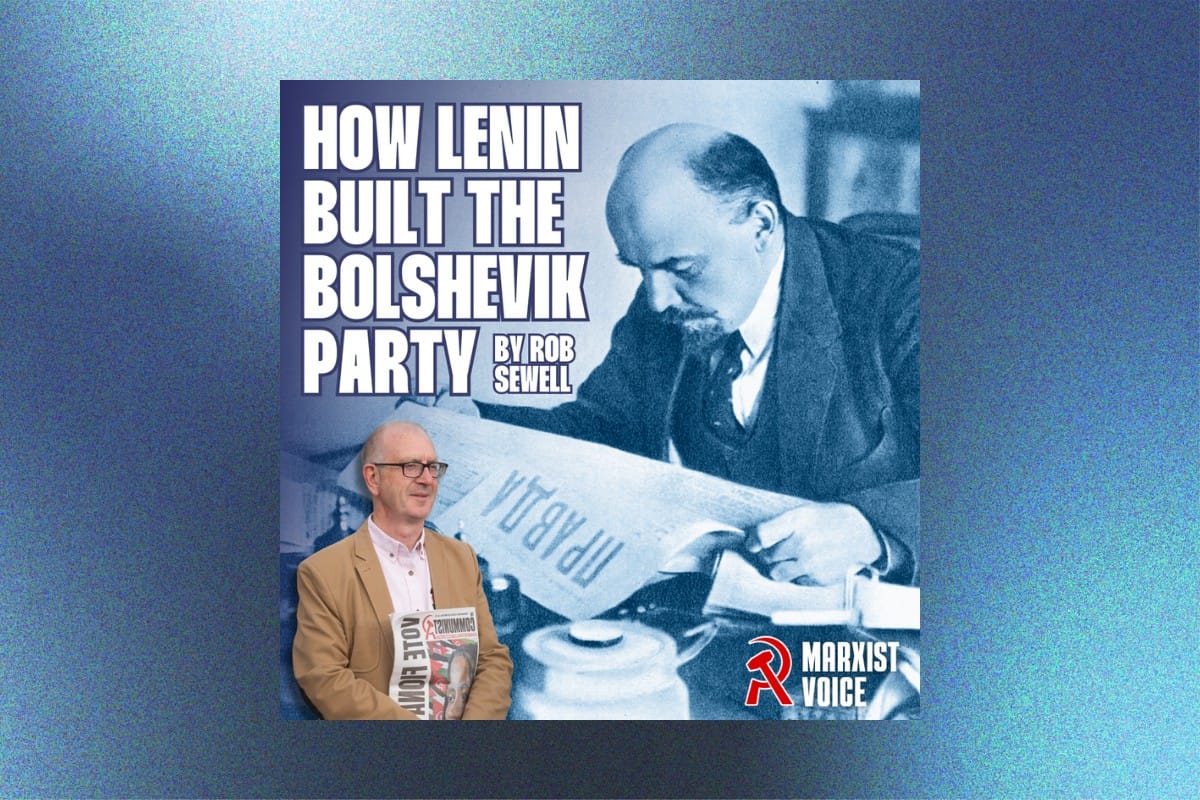In the dramatic weeks after the July Days of 1917 in Russia, the small forces of the Bolsheviks had started to recover and regroup, gaining ground not least in the proletarian base of Petrograd. Yet the danger of reaction had not gone away. During the summer, General Kornilov had been appointed to lead the Russian forces on the Western front.
It soon became clear, however, that he had ambitions of his own and saw himself as a Russian Napoleon, ready to “save” the country by becoming its dictator. His intention was to use the military forces under him to achieve that aim.
In his monumental work, the History of the Russian Revolution, Leon Trotsky explained what sort of man Kornilov was:
‘… it is easy to distinguish the traits which justified his candidacy for the post of national savior. General Martynov… characterizes Kornilov as follows: “Distinguished by a sustained love of work and great self-confidence, he was in his intellectual faculties an ordinary and mediocre man, not possessed of any broad outlook.” Martynov places to the credit of Kornilov two traits: personal bravery and disinterestedness. In those circles where most people were thieving and worrying about their own skin, these qualities were striking.’
However, Trotsky then continues:
‘Before the revolution Kornilov had been a monarchist of the Black Hundred tint… political ideas occupied him, as is usual with people of his mould, only insofar as they directly affected his own person… Mensheviks, Social Revolutionaries, and Bolsheviks constituted for him one hostile mass which hindered the officers from commanding, the landlord from enjoying his estate, the merchant from trading, and the factory owner from producing goods.’
What was the background to the situation within Russia and within the Provisional Government of Kerensky itself, as July turned to August? Trotsky explains:
‘Every class society has need of unity in the governmental will. The dual power is in its essence a régime of social crisis signifying an utter dividedness of the nation. It contains within itself potential or actual civil war. Nobody any longer wanted the dual power. On the contrary, all were searching for a strong, single-minded, “iron” government. The July government of Kerensky had been endowed with unlimited powers. The design had been by common consent to establish above the democracy and the bourgeoisie, who were paralysing each other, a “real” sovereign power. This idea of a master of destiny rising above all classes, is nothing but Bonapartism. If you stick two forks into a cork symmetrically, it will, under very great oscillations from side to side, keep its balance even on a pin point: that is the mechanical model of the Bonapartist superarbiter. The degree of solidity of such a power, setting aside international conditions, is determined by the stability of equilibrium of the two antagonistic classes within the country. In the middle of May at a session of the Petersburg soviet, [I] had defined Kerensky as “the mathematical centre of Russian Bonapartism.” The immateriality of this description shows that it was not a question of personality but of function… The two hostile camps invoked Kerensky, each seeing in him a part of itself, and both swearing fealty to him. [I] wrote while in prison: Led by politicians who are afraid of their own shadow, the Soviet did not dare take the power. The Kadet party, representing all the propertied cliques, could not yet seize the power. It remained to find a great conciliator, a mediator, a court of arbitration.’
The trouble for Kerensky was that while he wanted the job of being the Russian Napoleon, so did Kornilov. As the perceived military threat from Kornilov grew, Kerensky tried to cut a deal but Kornilov was having none of it. By mid-August (Old Calendar) Kornilov’s plot to seize power was starting to take shape as Trotsky outlines:
‘Through the mediation of the League of Officers Kornilov had got in touch with Petrograd patriotic societies who had at their disposal, according to their own words, 2,000 men excellently armed but requiring experienced officers to lead them. Kornilov promised to supply commanders from the front under the pretext of leave-of-absence. In order to keep watch of the mood of the Petrograd workers and soldiers and the activity of revolutionists, a secret intelligence service was formed, at the head of which stood a colonel of the Savage Division, Heiman.’
Seeking to crush the revolution
The bourgeoisie were pushing for an end to the crisis (in their favour of course) and, in Trotsky’s words, ‘[a]ll the ruling classes were talking about an impending insurrection because they were in desperate need of one.’
Trotsky continues:
‘Bankers, industrialists, Cossack generals were urging him [Kornilov] on. The metropolitans had given him their blessing… Telegrams of greeting were coming from all sides. The Allied embassies took an active part in the mobilisation of the counter-revolutionary forces… The military attache’s of the Allies at headquarters assured him of their most cordial sympathies… Kornilov saw no reason to postpone and wait. On or about the 20th [August], two cavalry divisions were advanced further in the direction of Petrograd. On the day Riga fell, four officers from each regiment of the army were summoned to headquarters, about 4000 in all, “for the study of English bomb-throwing.” To the most reliable of these officers it was immediately explained that the matter in view was to put down “Bolshevik Petrograd” once for all.’
“It is time,” [Kornilov] said… “to hang the German agents and spies, Lenin first of all, and disperse the Soviet of Workers’ and Peasants’ Deputies – yes, and disperse it so it will never get together again.”
It was clear that should Kornilov have succeeded, then the revolution would have been suppressed with great bloodshed and with no room for mercy. As word of the approach of Kornilov’s forces started to spread, the reformist elements within the Soviets turned in panic to the Bolsheviks for help. Lenin’s position was clear: they would mobilise against Kornilov but in no way give support to Kerensky and his rotten regime. They were two different issues. “Even now we must not support Kerensky’s government. This is unprincipled,” argued Lenin “We shall fight, we are fighting against Kornilov, just as Kerensky’s troops do, but we do not support Kerensky. On the contrary, we expose his weakness.”
The United Front
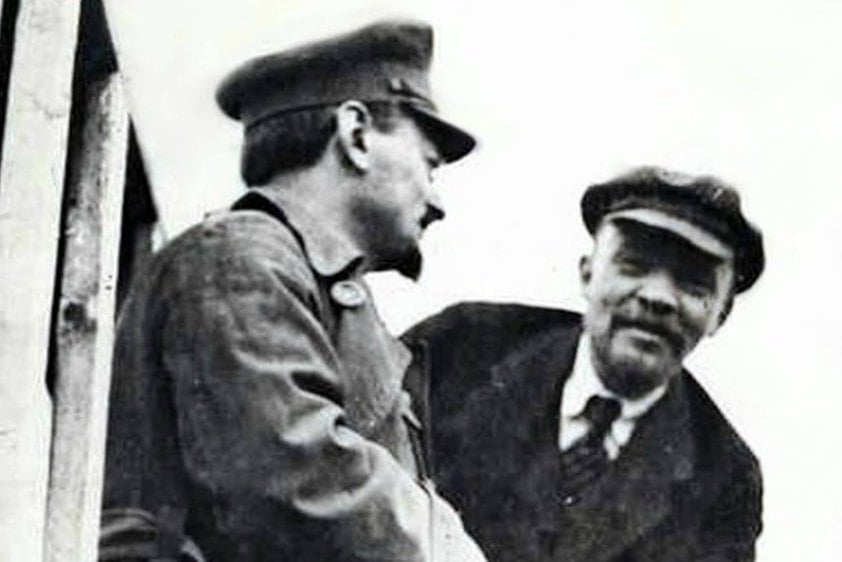 Lenin sought to target the forces of reaction but in doing so expose the weakness and inability of the reformists to act, in the face of such a crisis, in the interests of the masses. The tactic that Lenin raised would be known as the United Front. This would involve being ready and prepared to struggle against the common enemy alongside the Mensheviks, the SRs and other organisations of the workers and soldiers. Indeed the Bolsheviks were to be the most committed elements within the fight so as to make clear that they had the most effective means to resolve the crisis. In doing so, however, it was made clear by Lenin but in no way should they abandon or hide any aspect of their programme.
Lenin sought to target the forces of reaction but in doing so expose the weakness and inability of the reformists to act, in the face of such a crisis, in the interests of the masses. The tactic that Lenin raised would be known as the United Front. This would involve being ready and prepared to struggle against the common enemy alongside the Mensheviks, the SRs and other organisations of the workers and soldiers. Indeed the Bolsheviks were to be the most committed elements within the fight so as to make clear that they had the most effective means to resolve the crisis. In doing so, however, it was made clear by Lenin but in no way should they abandon or hide any aspect of their programme.
The one person who seemed unable to act was Kerensky who, having realised the personal threat from Kornilov to himself, had sacked Kornilov from his position and called for his arrest. The other ministers of the government had resigned and Kerensky on paper had total power. But power over what? The indications were that Kornilov would take the government without even a fight and that Kerensky had no real forces.
However, the mobilisation of the Bolsheviks was having an immediate effect. The slogan of “all power to the soviets” began to gain ground in the face of counter-revolution. The people of Petrograd were ready to fight Kornilov and with good reason as Trotsky notes:
‘…the masses led by the Bolsheviks in fighting against Kornilov did not place a moment of trust in Kerensky. For them it was not a case of defending the government, but of defending the revolution. So much the more resolute and devoted was their struggle. The resistance to the rebels grew out of the very road beds, out of the stones, out of the air.’
Trotsky explains what happened next:
‘While Kerensky, bending under the weight of a “more than human responsibility,” was measuring the floors of the Winter Palace in solitude, the Committee of Defense, also called the Military Revolutionary Committee, was taking action on a vast scale… The lower soviet organisations in their turn did not await any summons from above. The principal effort was concentrated in the workers’ districts. During the hours of greatest vacillation in the government, and of wearisome negotiations between the Executive Committee and Kerensky, the district soviets were drawing more closely together… Again the inexhaustible vitality of the soviet form of organisation was revealed. Although paralysed above by the leadership of the Compromisers, the soviets were reborn again from below at the critical moment under pressure from the masses…’
Trotsky then describes the result:
‘On the 28th of August, while fright was shaking the Winter Palace like a fever, the commander of the Savage Division, Prince Bagration, informed Kornilov by telegraph that “the natives would fulfil their duty to the fatherland and at the command of their supreme hero … would shed the last drop of their blood.” Only a few hours later the division came to a halt… All this happened not only without a battle, but without the firing of a single shot. To say nothing of its last, the division did not shed even its first drop of blood. The soldiers of Kornilov never even made the attempt to employ weapons to force their way to Petrograd. The officers did not dare give them the command. The government troops were nowhere obliged to resort to force in stopping the onslaught of the Kornilov army. The conspiracy disintegrated, crumbled, evaporated in the air.
Preparing the conditions for October
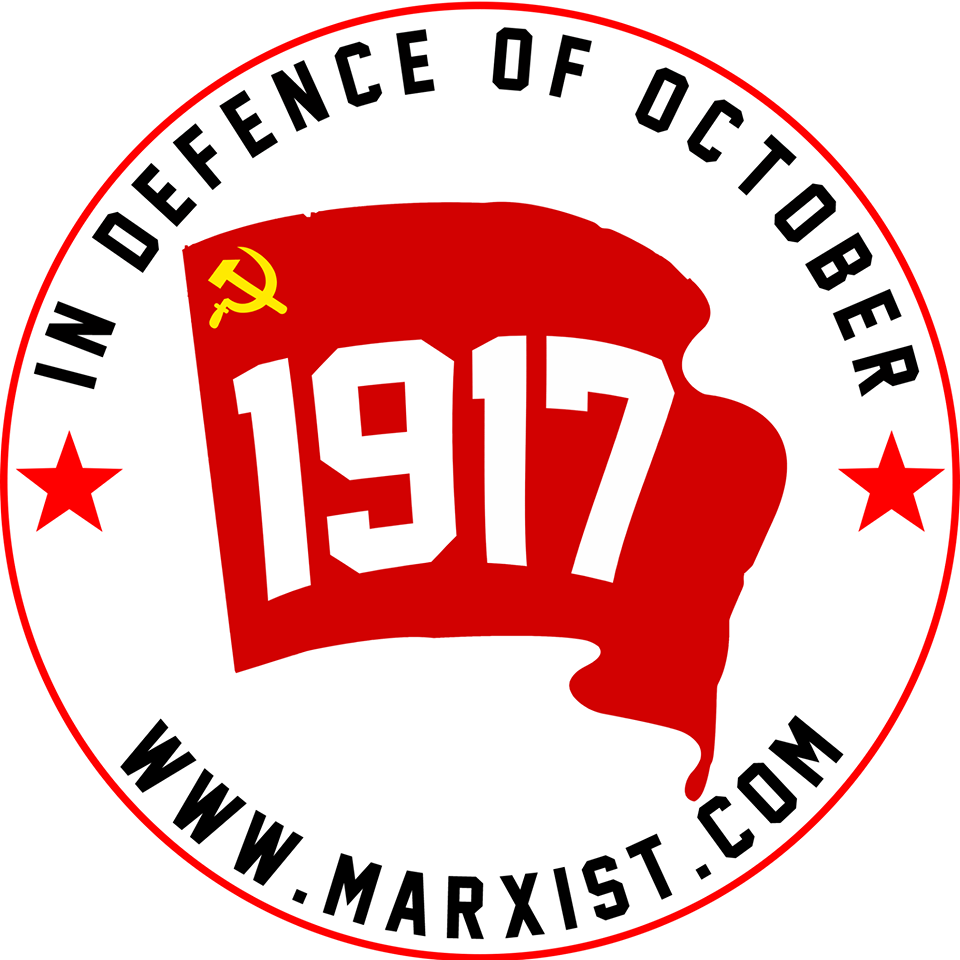 Kornilov’s forces were crumbling. Rank and file soldiers were rebelling against those officers who were seen as likely Kornilov supporters. Within days Kornilov was under arrest, although he was later allowed to “escape” from prison and would play a reactionary role after the October revolution. In the soviets, the determination of the Bolsheviks and the clarity of their programme at a time of maximum danger started to earn them increased support within the masses. Where once they had been in a small minority, now the Bolsheviks would start to win key votes.
Kornilov’s forces were crumbling. Rank and file soldiers were rebelling against those officers who were seen as likely Kornilov supporters. Within days Kornilov was under arrest, although he was later allowed to “escape” from prison and would play a reactionary role after the October revolution. In the soviets, the determination of the Bolsheviks and the clarity of their programme at a time of maximum danger started to earn them increased support within the masses. Where once they had been in a small minority, now the Bolsheviks would start to win key votes.
‘This upswing’ explains Trotsky ‘was made possible only thanks to the double-edged Bolshevik policy. While participating in the frontlines of the struggle against Kornilov, the Bolsheviks did not take the slightest responsibility for the policy of Kerensky. On the contrary they denounced him as responsible for the reactionary attack and as incapable of overcoming it. In this way they prepared the political premises of the October revolution.’
In his autobiography My Life, Trotsky recalled the words he had written at the time of the Kornilov revolt:
‘… Hounded, persecuted, slandered, our party never grew as rapidly as it is growing now. And this process will spread from the capitals to the provinces, from the towns to the country and the army . . . Without ceasing for a moment to be the class organisation of the proletariat, our party will be transformed in the fire of persecution into a true leader of all the oppressed, downtrodden, deceived and hounded masses.”

